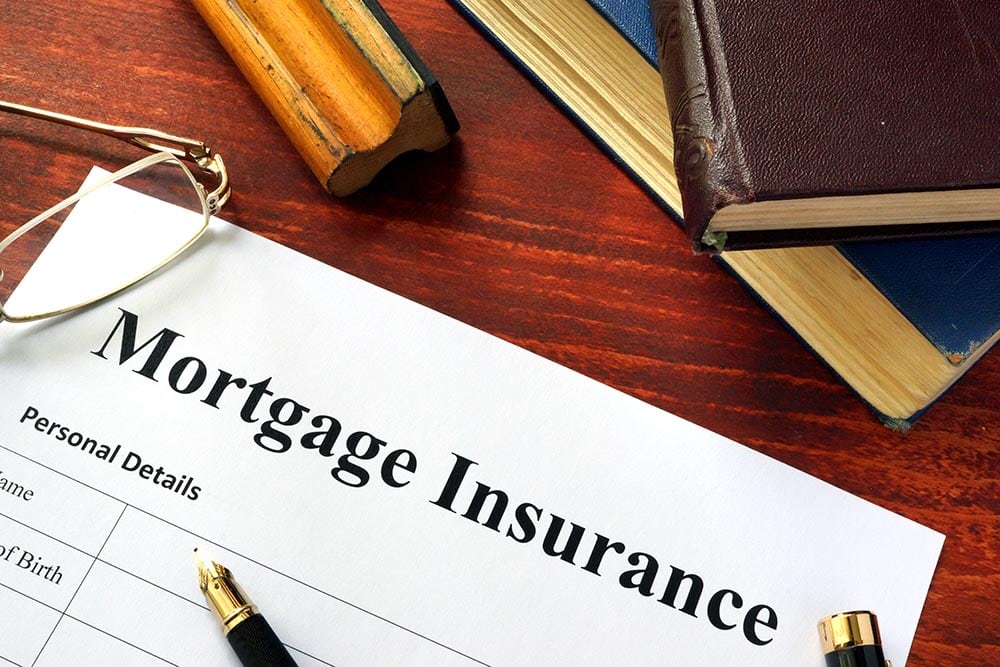What Is Mortgage Protection Insurance? Is It Necessary?
-
Pete Ortiz
- Last updated:

You’ve just been approved for a mortgage and are ready to buy your dream home. Congratulations! You’re most likely feeling excited and a little nervous about the process. But what happens if you cannot repay your mortgage because of unforeseen circumstances?
That’s where mortgage protection insurance (MPI) comes in. MPI is also known as mortgage life insurance. It pays the outstanding mortgage balance in case of death, accident, or critical illness. Besides, it’ll allow your dependents to continue living in your home. Your family won’t have to sell the home or take another loan to pay off the mortgage.
So, how does MPI work, and do you need it? To answer these questions, we need to look at mortgage protection insurance in detail. Keep reading!
How Does Mortgage Protection Insurance Work?
MPI works the same way as any other type of life insurance, but unlike other types of life insurance, it doesn’t have a cash value; you cannot cash it in.
Instead, it ensures that if you get sick, lose your job or die while your mortgage is still outstanding, the monthly payments will continue to be made.
Once you apply for mortgage protection insurance, you’ll remit monthly premiums for coverage. The amount paid out depends on how much is owed on the mortgage at the time of death or event incapacitating payments, and how much coverage you had taken.
If you have mortgage protection, you don’t have to worry about paying the mortgage if you lose your job or get sick. You will already be well covered.

What Are the Different Types of Mortgage Protection Insurance?
It is wise to ensure you are protected financially. That’s the easiest way to protect yourself from the unexpected such as death, sickness, or even a loss of employment.
There are three types of mortgage protection insurance that you can take:
1. Unemployment
If you lose your job, this type of mortgage protection insurance will pay off your mortgage loan. The payments are made directly to your mortgage lender. They can also be used for any outstanding principal or interest payments. The amount paid depends on how long you’ll take to find a new job.
2. Accident and Sickness
Usually, this mortgage protection insurance covers death due to accident, sickness, or disability. All these can prevent you from working and render you unable to pay your mortgage. Some policies also include coverage for critical illness.
The amount you receive depends on how much you paid into the policy and how long you’ve been paying premiums.

3. Combined (Unemployment, Accident, and Sickness)
This mortgage protection insurance combines unemployment, accident, and sickness cover into one policy. It can be an excellent option to insure against all three risks. That’s because it provides a wide range of coverage at an affordable price.
Usually, combined mortgage protection insurance policies are cheaper than single policies. They can also be more comprehensive.
 Where Is Mortgage Protection Insurance Used?
Where Is Mortgage Protection Insurance Used?
Homeowners use mortgage protection insurance to protect their home equity in case of any eventuality. Usually, it protects against mortgage payment default. It’s also helpful if you want to pass on your home to your family members.
Many people take out mortgage protection insurance as a precautionary measure, even though they may not need it. Some lenders consider mortgage protection insurance optional, while others consider it mandatory.
You may not have any outstanding debts or loans. Or maybe you have enough money to cover your mortgage payments for at least five years when you pass away. If that’s the case, you don’t need mortgage protection insurance.
Mortgage lenders are required by law to offer mortgage protection insurance when they lend money for home purchases. The requirements vary from state to state.

Advantages of Mortgage Protection Insurance
- An excellent addition to life insurance coverage
- Gives you peace of mind
- Provides disability protection
- Provides certainty, no guesswork involved
Disadvantages of Mortgage Protection Insurance
- MPI policy is expensive and adds more burden to your budget every month
- The policy’s value decreases over time
- Limited death benefit
- You cannot choose the beneficiary
- More limited age limits
Where Do You Buy Mortgage Protection Insurance?
A home is the biggest purchase you will make in your lifetime, so you must protect your investment. A mortgage protection insurance will cater to this. So, where do you buy mortgage protection insurance?
From a Private Insurance Firm
Mortgage protection insurance policy is available from private insurance companies. You can also get it from banks or building societies specializing in MPI policies.
Getting mortgage protection from a private company depends on your state, but the process is simple- you fill out an application with the company and wait for them to approve or reject it. It depends on your financial situation.
Once approved, you will be asked to provide more information about your income, assets, and any other outstanding debts you may have. This way, they can determine how much coverage you should receive. Shop around to compare quotes before deciding on a provider.

From a Mortgage Lender
The mortgage lender will look at your financial situation when you apply for a loan. That includes your income and credit history. Then, they’ll decide whether they feel comfortable lending you money. If they do, they’ll give it to you in the form of a loan.
The mortgage lender will also need you to take out mortgage protection insurance when you apply for a loan. You can also buy mortgage protection insurance separately from the mortgage lender. It may be helpful if you want to shop around for a better deal or don’t want to add another monthly payment.
From a Life Insurance Provider
A life insurance provider is the most common way to get mortgage protection insurance. It can be set up as part of your existing life insurance policy. So, there’s no need for another application form or medical questionnaire.
Many life insurance companies offer mortgage protection insurance plans. Mortgage protection policies are often sold as an add-on to other insurance policies. Usually, they’re more expensive than standalone policies.
Factors Affecting the Cost of Mortgage Protection Insurance
There are various factors to consider when you buy mortgage protection insurance. All these factors are important because they will affect the cost of the mortgage protection insurance you choose. Let’s run through some of the main ones.
- Age: The older you are, the more expensive mortgage protection insurance will be. That’s because you’re more likely to need it. Insurers must make sure that they can cover any claims that may arise.
- Cost of the Mortgage: The higher your mortgage amount, the more expensive your mortgage protection insurance will be. It’s because you have more at stake in case something happens.
- Health: Individuals with poor health records will pay higher premiums compared to those with good health records. Smoking and taking alcohol affects the health of an individual, so this factor is also taken into consideration when assessing your health.
- Policy Length: There will be variations in price if each policy has a different duration. A longer-term means you will pay less per month but more throughout your coverage. On the other hand, a shorter period means you will pay more per month but less overall.
- Single or Dual: A single mortgage protection insurance cover is cheap. But, if the two of you take a mortgage, the dual mortgage protection insurance cover is the most inexpensive option.
What Are the Substitutes for Mortgage Protection Insurance?
There are several alternatives to mortgage protection insurance. These alternatives may be better suited to your needs. They can reduce costs and give you peace of mind if something happens.
Here are some of the most common ones:
1. Critical Illness Cover
This life insurance pays out a lump sum if you’re sick with one of the many conditions covered by your policy. These include cancer, heart attack, and stroke. The amount paid out will depend on how severe your illness is. It also depends on how much coverage you have taken.
Critical illness coverage is not designed to replace your salary. It helps with any extra costs associated with your illness. It can be included in your life assurance policy or bought separately from an insurer. Your family can use the money to pay off any debts after your death.
2. Income Protection

Income protection insurance is designed to replace your income if you cannot work due to illness or injury. Several income protection insurance policies may pay for a longer period than mortgage insurance. It works through weekly payments until your condition improves enough to return to work or until retirement age.
Usually, income protection policies include rehabilitation coverage. It’s designed to help get you back on your feet faster once you’ve recovered from the injury or illness that prevented you from working.
3. Employee Benefits
If you have a personal pension scheme through your employer, it may include mortgage protection cover as part of its benefits package. If so, this may be an alternative way of paying your mortgage if you become ill or unemployed.
Check if your employer has made arrangements for employee benefits. It may be possible that your company will pay your salary when you take time off because of illness or accident.
Some companies do so. In this case, you don’t need to buy a policy yourself because your employer has already covered it.
4. Life Insurance

Life insurance is an excellent substitute for mortgage protection insurance. It pays out a lump sum in case of your death. It may not cover as much as mortgage protection insurance, so you’ll have to check with your provider.
The advantage of using life insurance over mortgage protection insurance is that it’s more flexible. It allows you to choose the amount paid out and how long it lasts. You can also choose whether the beneficiary gets a lump sum or monthly payments over time.
Check what happens when your policy expires or if it lapses. Some companies may need you to take out new insurance policies when this happens.
5. Government Help
There are different kinds of government assistance schemes and welfare programs that can help you prevent foreclosure and even save a home from being taken away.
These programs help pay off the deposit on your home loan and help you avoid paying higher interest rates in the future. The government also offers grants that may reduce your overall borrowing costs.
If you’re qualified for government help, you can apply for an SMI (Support for Mortgage Interest) loan.
Your mortgage lender will receive payments from the government. This payment can cover all or part of the interest. But the loan you get from the government doesn’t cater to your capital repayments. That means you’ll pay the Support for Mortgage Interest loan with interest, should you transfer your home ownership or sell it.
Frequently Asked Questions
1. What type of insurance is the best for mortgage protection?

The best type of insurance for mortgage protection is term life insurance. It covers more expenses and pays out to your family if you die before the end of the term. A term life insurance policy of 15, 20, or 30 years is recommended. It will ensure that your family doesn’t have financial problems after you die. You can also choose how much coverage you want for your family.
The best thing about a term life insurance policy is that you can cancel it whenever you want. That’s if you finish paying off your mortgage and you no longer need it.
The downside of mortgage protection insurance is that it doesn’t cater to several costs, such as everyday expenses and bills.
2. What is a suitable time to apply for mortgage protection?
It’s an excellent idea to apply for mortgage protection insurance at least four to six weeks before borrowing the mortgage. It will give you enough time to shop around and find the right policy.
Besides, it takes time to process the mortgage protection insurance. You may be denied a mortgage if you don’t have mortgage protection insurance.
Conclusion
Predicting the future can be challenging, particularly about a subject as large and diverse as mortgage and housing. Mortgage protection insurance (MPI) is designed to mitigate that risk.
It helps you to continue budgeting for your household expenses even if you face financial struggles. That may not be a huge concern right now, but you may find it valuable should the need ever arise.
In the end, mortgage protection insurance is a financial product designed to protect you from a catastrophe. Whether it’s being too sick to work, losing your job, or dying, having this type of coverage can save your home and keep your family secure.
- How Does Mortgage Protection Insurance Work?
- What are the Different Types of Mortgage Protection Insurance?
- Where is Mortgage Protection Insurance Used?
- Advantages and Disadvantages of Mortgage Protection Insurance
- Where do you buy Mortgage Protection Insurance?
- Factors Affecting the Cost of Mortgage Protection Insurance
- Is Mortgage Protection Insurance Necessary?
- What are the Substitutes for Mortgage Protection Insurance?
- What Type of Insurance is the Best for Mortgage Protection?
- What is the Suitable Time to Apply for Mortgage Protection?
- MONEY HELPER
- FINANCIAL SERVICES COMMISSION OF ONTARIO
- ENGLAND SHELTER
Featured Image Credit: David Mark, Pixabay
Contents



